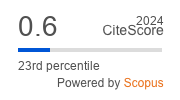EVALUATION OF THE FUNCTIONAL PROPERTIES OF A BIOLOGICAL CASE FOR IMPLANTABLE CARDIAC DEVICES, IMPREGNATED WITH BIOACTIVE SUBSTANCES IN AN EXPERIMENT ON LARGE LABORATORY ANIMALS
https://doi.org/10.29001/2073-8552-2019-34-2-118-128
Abstract
Aim. The purpose of the experimental study was to determine the functional properties of the case with antibacterial and hemostatic preparations impregnated on it, to assess the biological safety and the effectiveness of using this medical device in an in vivo model on large laboratory animals (pigs).
Material and Methods. The article presents the first results of an experimental study of a domestic extracellular collagen matrix-based biological case “Bio-NEST” for implantable cardiac devices, impregnated with bioactive substances, in an in vivo experiment on large laboratory animals. The experiment was conducted in three chronological stages to analyze and evaluate the safety, efficacy, and histological compatibility of the biological sheath during implantation and reimplantation of cardiac devices using bioactive substances (antibacterial, hemostatic, and their combinations) as well as under the conditions of the established model of infection with pathogenic microflora implant pocket.
Results. Results of the study showed that the use of the experimental cover sample was safe for a laboratory animal. Experimental samples were biocompatible and did not cause inflammatory and immune responses. Implantation of cardiac devices in the sample of the case allowed preventing implant migration and development of infectious inflammation of the implant bed when the experimental cover was impregnated with a solution of rifampicin and aminocaproic acid.
About the Authors
E. A. ArtukhinaРоссия
M.D., Dr. Sci. (Med.), Head of the Department of Endovascular and Radiological Methods for Diagnosis and Treatment of Arrhythmias
27, Bolshaya Serpukhovskaya str., Moscow, 117997, Russian Federation
V. A. Vaskovskiy
Россия
Cand. Sci. (Med.), Endovascular Surgeon, Department of Endovascular and Radiological Methods for Diagnosis and Treatment of Arrhythmias
27, Bolshaya Serpukhovskaya str., Moscow, 117997, Russian Federation
A. A. Venediktov
Россия
Cand. Sci. (Biol.). Director
1, Centralnaya str., Penza, 440004, Russian Federation
S. V. Evdokimov
Россия
Cand. Sci. (Tech.), Director
1, Centralnaya str., Penza, 440004, Russian Federation
S. S. Durmanov
Россия
Cand. Sci. (Med.), Head of the Department for Surgical Treatment of Complex Cardiac Rhythm Disturbances and Pacing No. 3
6, Stasova str., Penza, 440071, Russian Federation
I. A. Evtjushkin
Россия
Head of Diagnostic Laboratory
6, Stasova str., Penza, 440071, Russian Federation
V. V. Bazylev
Россия
M.D., Dr. Sci. (Med.), Professor, Chief Physician
6, Stasova str., Penza, 440071, Russian Federation
A. Sh. Revishvil
Россия
M.D., Dr. Sci. (Med.), Full Member of the Russian Academy of Sciences, Director
27, Bolshaya Serpukhovskaya str., Moscow, 117997, Russian Federation
References
1. Goldberger Z., Lampert R. Implantable cardioverter-defibrillators: expanding indications and technologies. J. Am. Med. Assoc. 2006;295:809–818. DOI: 10.1001/jama.295.7.809.
2. Baddour L.M., Epstein A.E., Erickson C.C., Knight B.P., Levison M.E., Lockhart P.B., et al. Update on cardiovascular implantable electronic device infections and their management: a scientific statement from the American Heart Association. Circulation. 2010;121:458–477. DOI: 10.1161/CIRCULATIONAHA.109.192665.
3. Epstein A.E., Dimarco J.P., Ellenbogen K.A., Estes N.A. 3rd, Freedman R.A., Gettes L.S., et al. ACC/AHA/HRS 2008 guidelines for device-based therapy of cardiac rhythm abnormalities. Heart Rhythm. 2008 May 27;51(21):e1–62. DOI: 10.1016/j.jacc.2008.02.032.
4. Athan E., Chu V.H., Tattevin P., Selton-Suty C., Jones P., Naber C., et al. Clinical characteristics and outcome of infective endocarditis involving implantable cardiac devices. J. Am. Med. Assoc. 2012;307:1727–1735. DOI: 10.1001/jama.2012.497.
5. Le K.Y., Sohail M.R., Friedman P.A., Uslan D.Z., Cha S.S., Hayes D.L., et al. Impact of timing of device removal on mortality in patients with cardiovascular implantable electronic device infections. Heart Rhythm. 2011;8:1678–1685. DOI: 10.1016/j.hrthm.2011.05.015.
6. Deharo J.C., Quatre A., Mancini J., Khairy P., Le Dolley Y., Casalta J.P., et al. Long-term outcomes following infection of cardiac implantable electronic devices: a prospective matched cohort study. Heart. 2012;98:724–731. DOI: 10.1136/heartjnl-2012-301627.
7. Prutkin J.M., Reynolds M.R., Bao Haikun, Curtis J.P., Al-Khatib S.M., Aggarwal S., et al. Rates of and factors associated with infection in 200 909 Medicare implantable cardioverter-defibrillator implants: results from the National Cardiovascular Data Registry. Circulation. 2014 Sept. 23;130(13):1037–1043. DOI: 10.1161/CIRCULATIONAHA.114.009081.
8. Kolek M.J., Patel N.J., Clair W.K., Whalen S.P., Rottman J.N., Kanagasundram A., et al. Efficacy of a bio-absorbable antibacterial envelope to prevent cardiac implantable electronic device infections in high-risk subjects. J. Cardiovasc. Electrophysiol. 2015;26(10):1111–1116. DOI: 10.1111/jce.12768.
9. Shariff N., Eby E., Adelstein E., Jain S., Shalaby A., Saba S., et al. Health and economic outcomes associated with use of an antimicrobial envelope as a standard of care for cardiac implantable electronic device implantation. J. Cardiovasc. Electrophysiol. 2015;26(10):783–789. DOI: 10.1111/jce.12684.
10. Henrikson C.A. Citadel and Centurion Study Results: Use of antibacterial envelope is associated with low 12-month CIED infection rates. Oral presentation at European Heart Rhythm Association (EHRA) EUROPACE-CARDIOSTIM 2015.
11. Bloom H.L., Constantin L., Dan D., De Lurgio D.B., El-Chami M., Ganz L.I., et al. Implantation success and infection in cardiovascular implantable electronic device procedures utilizing an antibacterial envelope. Pacing Clin. Electrophysiol. 2011;34(2):133–142. DOI: 10.1111/j.1540-8159.2010.02931.x.
Review
For citations:
Artukhina E.A., Vaskovskiy V.A., Venediktov A.A., Evdokimov S.V., Durmanov S.S., Evtjushkin I.A., Bazylev V.V., Revishvil A.Sh. EVALUATION OF THE FUNCTIONAL PROPERTIES OF A BIOLOGICAL CASE FOR IMPLANTABLE CARDIAC DEVICES, IMPREGNATED WITH BIOACTIVE SUBSTANCES IN AN EXPERIMENT ON LARGE LABORATORY ANIMALS. Siberian Journal of Clinical and Experimental Medicine. 2019;34(2):118-128. (In Russ.) https://doi.org/10.29001/2073-8552-2019-34-2-118-128
JATS XML





.png)





























